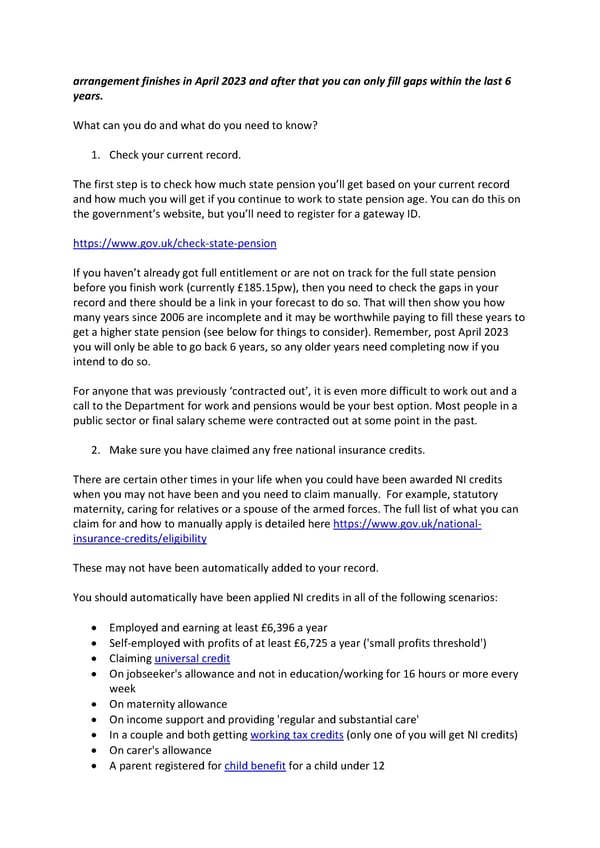arrangement finishes in April 2023 and after that you can only fill gaps within the last 6 years. What can you do and what do you need to know? 1. Check your current record. The first step is to check how much state pension you’ll get based on your current record and how much you will get if you continue to work to state pension age. You can do this on the government’s website, but you’ll need to register for a gateway ID. https://www.gov.uk/check-state-pension If you haven’t already got full entitlement or are not on track for the full state pension before you finish work (currently £185.15pw), then you need to check the gaps in your record and there should be a link in your forecast to do so. That will then show you how many years since 2006 are incomplete and it may be worthwhile paying to fill these years to get a higher state pension (see below for things to consider). Remember, post April 2023 you will only be able to go back 6 years, so any older years need completing now if you intend to do so. For anyone that was previously ‘contracted out’, it is even more difficult to work out and a call to the Department for work and pensions would be your best option. Most people in a public sector or final salary scheme were contracted out at some point in the past. 2. Make sure you have claimed any free national insurance credits. There are certain other times in your life when you could have been awarded NI credits when you may not have been and you need to claim manually. For example, statutory maternity, caring for relatives or a spouse of the armed forces. The full list of what you can claim for and how to manually apply is detailed here https://www.gov.uk/national- insurance-credits/eligibility These may not have been automatically added to your record. You should automatically have been applied NI credits in all of the following scenarios: • Employed and earning at least £6,396 a year • Self-employed with profits of at least £6,725 a year ('small profits threshold') • Claiming universal credit • On jobseeker's allowance and not in education/working for 16 hours or more every week • On maternity allowance • On income support and providing 'regular and substantial care' • In a couple and both getting working tax credits (only one of you will get NI credits) • On carer's allowance • A parent registered for child benefit for a child under 12
 Use it or Lose it - Tax Year End Planning 2023 Page 8 Page 10
Use it or Lose it - Tax Year End Planning 2023 Page 8 Page 10